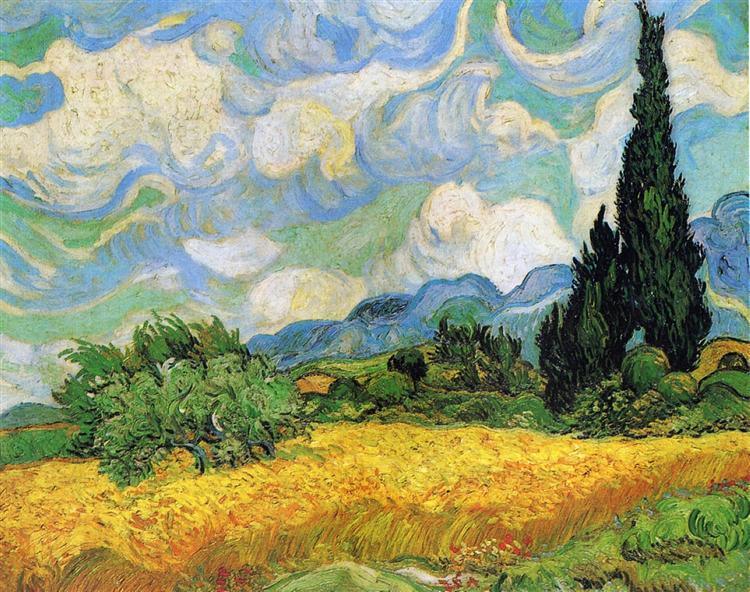Description
The painting "Wheat Field with Cypresses in the Haude Galline near Eygalieres" by Vincent Van Gogh is a masterpiece of post-impressionist impressionism. This painting was created in 1889, during the time Van Gogh spent in the Saint-Paul-de-Mausole mental hospital in Saint-Rémy-de-Provence, France.
The composition of the painting is impressive, with a field of golden wheat stretching to the horizon, while cypress trees reach into the sky. Van Gogh's brushwork is bold and expressive, creating a sense of movement and energy in the painting.
Color is another outstanding aspect of this work. Van Gogh uses a bold and vibrant color palette, with shades of yellow, green and blue blending together to create a sense of light and shadow in the painting. The cypress trees, in particular, are an example of Van Gogh's ability to create an effect of light and shadow with his use of colour.
The story behind this painting is fascinating. Van Gogh was fascinated by the beauty of nature and spent much of his life painting landscapes. During his time in the mental hospital, Van Gogh found solace in nature and painted many landscapes of the surrounding area.
A little known aspect of this painting is that Van Gogh created it as part of a series of cypress paintings. In all, Van Gogh painted around 20 paintings of cypress trees during his time in Saint-Rémy-de-Provence, and this painting is one of the most famous in the series.

